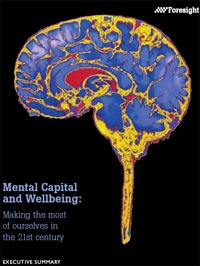 |
 |
|
Mental Wellbeing A Key To Workers And Economic Health The UK needs a major rethink of workers' mental health during the current economic uncertainty, government advisers have said. The Government scientific think tank, Foresight, has published a major new report entitled Mental Capital and Well Being, looking at how society can realise its mental potential, focusing on a wide range of aspects including how to enhance mental health and well-being at work.
Professor Cary Cooper, one of the authors of the report from the Foresight group, said a pressing issue was the number of workers who did not feel able to take time off when they were sick or stressed. Presenteeism - where the 'working wounded' troop in despite being unwell - could cost the UK around £900 million per year, the report estimated. The study defines mental capital as a person's cognitive and emotional resources. It examines how good they are at learning and their “emotional intelligence”, such as their social skills and resilience in the face of stress. The publication also examines the issue of well-being at work, noting that work-related absenteeism accounts for between 10 million to 14 million days lost, costing business around £750 million per annum. The experts conclude that new forms of flexible working could help employees meet the conflicting demands of intensification of work and the increased need for people to look after older relatives. It calls for better integration of primary care and occupational health services to identify early symptoms of stress and mental ill health which could help people return to work. It remains to be seen whether or not the report will be shelved due to the credit crunch, given that Government minister Mandelson has made it clear he wishes to review flexible working policy - one of the major tenants of this report. The executive summary of the report can be accessed online here Source: Risks / Croner's
|
